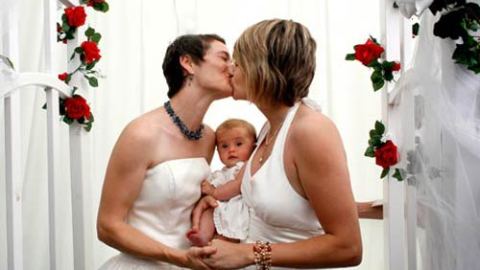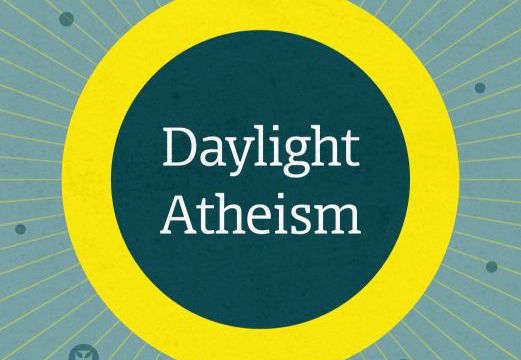Is having a lesbian mother bad for children?

To lesbian mothers everywhere I have this to say – welcome to the community of second-rate parents. Don’t worry, you won’t be lonely here. You will have lots of company among us single and divorced mothers who have doomed their children to miserable lives. You thought you were doing a good job, I know, but as it turns out the only thing that really matters is that you are sleeping at night next to the man that shares their DNA. You might as well accept that your little one is going to be a drug addicted, high school dropout who is reliant on government aid as there is nothing you can do about it.
How bad is the news?
The children of gay fathers are fine though, because those children usually live with their fathers for very little of their childhood. Phew!
Perhaps you would like me to tell you in what way these statistics are all wrong, but I am not going to do that. I am certain others will though, since empirical evidence we don’t want to believe is true is always held to a higher standard than evidence that jibes with our own set of beliefs.
Instead I am going to tell you why I think there is probably some truth in these numbers.
Almost half of all women in lesbian relationships were at some point in time married to a man. If we only look at women who have children, that share is much larger. In this data between 74% and 83% of the children of lesbian mothers had biological parents who were married to each other, or lived in the same household, at some point in time. Others, not identified, will have been born to single women who were in a romantic relationship with a man at the time of their conception.
So, the majority of the children in this sample have lived at some point in their lives with the instability of separation and divorce or were born to single women. And we already know that children from those types of backgrounds fare worse, on average, than children who were raised by married biological parents.
In addition, over 30% of women who are in lesbian relationships report that they have been physically abused by a sexual partner at some point in their life. If we only consider the subset of women who have previously been in heterosexual relationships in the past that share will be much larger. Several of the negative outcomes observed in this data are predicted by growing up in a home in which physical abuse has been an issue.
The author of this paper acknowledges that these children are significantly more likely to have grown up with instability and, in fact, were much more likely to spend time in foster care. But the reader is left to assume that the source of the instability and, presumably also the abuse or neglect, is the mother’s sexual orientation not that the mother’s choice of sexual partner is the result of instability and/or abuse.
It will be interesting to see what the fall out from this research will be. For example, will lesbians have a harder time adopting babies now? Or will courts use it to award custody to fathers based on the sexual orientation of the mother? Will legislators use it to pursue laws that keep children away from lesbian mothers?
I certainly hope not.
Reference:
Regnerus, Mark (2012). “How different are the adult children of parents who have same-sex relationships? Findings from the New Family Structures Study” Social Science Research vol. 41: pp 752-770.




